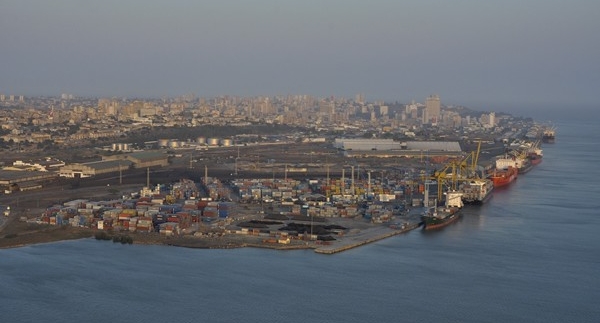Port of Maputo registers 22 percent growth in volume, handles 18.2 million tonnes in 2017
Situated in Southern Mozambique, Port of Maputo had a good run in in 2017. The port handled 18.2 million tonnes of cargo last year against 14.9 million tonnes in 2016, registering a surge of 22 percent in volumes.

January 30, 2018: Situated in Southern Mozambique, Port of Maputo had a good run in in 2017. The port handled 18.2 million tonnes of cargo last year against 14.9 million tonnes in 2016, registering a surge of 22 percent in volumes.
The result was positively affected by the dredging of the access channel to the Port of Maputo, completed in January 2017. Before dredging, with the channel at -11 meters chart datum, the maximum sailing draft of the vessels in Maputo and Matola was, on average, 12.20 meters and the maximum parcel size varied between 50,000 and 55,000 tonnes.
“The dredging resulted in an increase of 40 percent to the average parcel size for Maputo Main Port and a 55 percent increase for Matola. The maximum vessel upliftment achieved to date was MV AMANI with 96.400 tonnes of magnetite,” said the CEO Osório Lucas. Additionally, he noted that in 2016 the Port received 955 vessel calls and in 2017 it received 896, which means, 59 less ships but more 3.3 millions of cargo.
In July 2017, the Matola Coal Terminal (TCM) inaugurated the rehabilitation of its berth, which included deepening to -15.4 meters below chart datum along the quayside. TCM has thus become the port’s first terminal to take full advantage of the dredging initiative, allowing fully-laden Panamax vessels of up to 275 meters long, 14.5 meters of the draft on neap tides and 15.5 meters on spring tides. The average vessel upliftment at TCM, since the berth inauguration, is estimated at 85.000 tonnes. Transnet rail delivery showed an improvement in 2017 which, together with the berth rehabilitation, allowed the terminal to reach the record volume of 5.3 million tonnes.
In 2017, the DP World Maputo Container Terminal also began its expansion works from 150.000 TEU’s to 250.000 TEU’s, scheduled for completion at the end of January 2018. The works included the expansion for two rail sidings of 375 meters each in length. The second phase of expansion contemplates the increase to 450.000 TEU’s, dependent on market demand.
Maputo is also now preparing to receive vessels of even greater drafts, with the rehabilitation of berths 6, 7, 8 and 9 (a total of 1058 meters of berth) which will begin in the second quarter of 2018.
"This is a major project and marks the last major steps defined by the master plan for the Port of Maputo. The rehabilitation will not only create berths with a depth of up to -15 meters below chart datum but will improve the berth occupation rate through the creation of a bigger and deeper mooring area", elaborated Lucas.
In 2017, rail cargo handling also showed a growing trend. Rail freight volumes have grown in recent years as a result of a joint strategy between the port and the CFM. As an example, the rail volume of one of the main cargoes handled by the Maputo port, chrome ore and ferro-chrome, grew by almost 100% (from 411,000 tonnes in 2016 to almost 1 million tonnes in 2017). However, the difference in rail and road volumes is still very large.
"Together with CFM, we continue to work to improve efficiencies and promote a better balance between rail and road freight. We believe that the various initiatives undertaken in 2017 will have a direct impact on the growth of rail volumes this year, "added the chief executive.
Regarding the reception of cruises, whose season lasts from November to April, the port has already started the construction of a terminal dedicated to passengers, scheduled to be completed in March 2018. The future cruise terminal is part of an integrated project of the transformation of a warehouse into a mess facility and a zone of other services for port staff. The cruise terminal will allow passengers to receive the passengers with greater dignity, as well as providing a space for culture and crafts.
Dredging and ongoing projects will allow the port to respond to the growing demand for the regional market and achieve significantly larger volumes per year, with the aim of handling 30 million tonnes by the end of the concession period.


